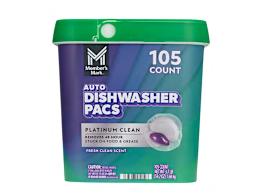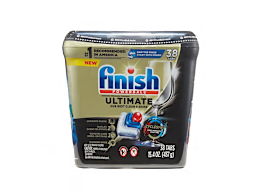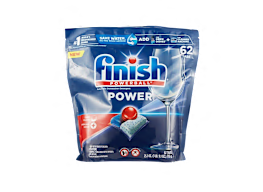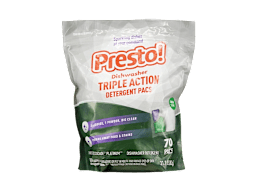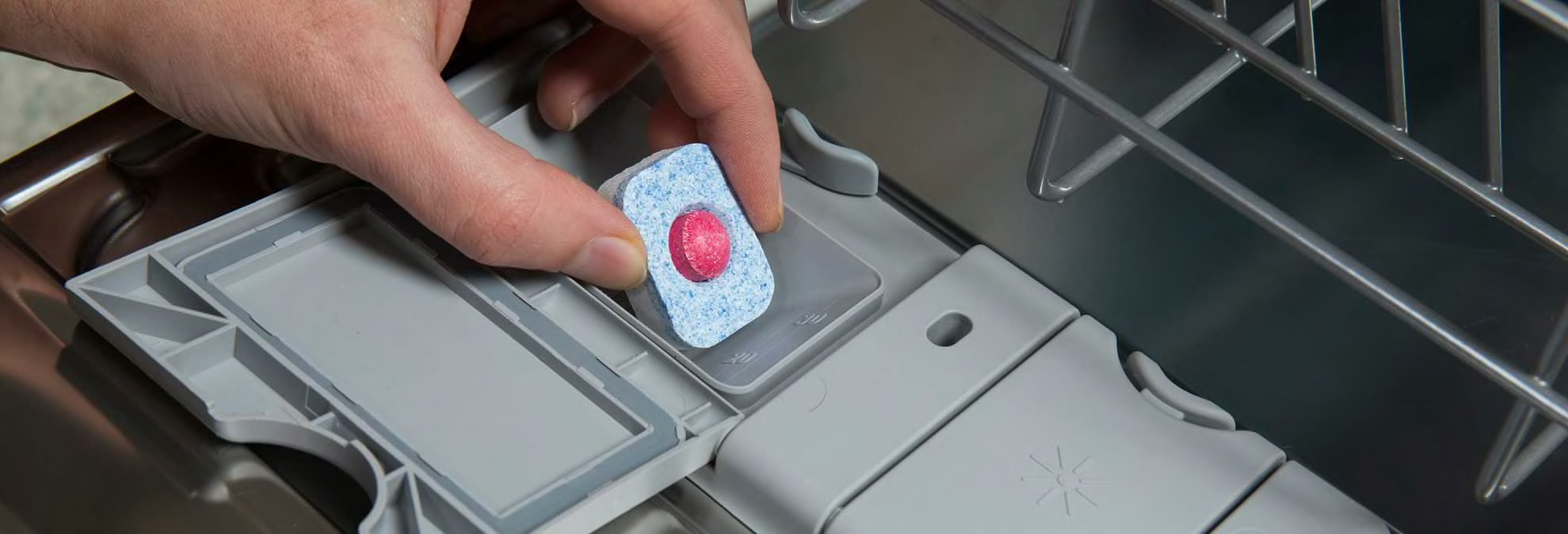
Dishwasher Detergent Buying Guide
Senior Home & Appliances Writer
Which type of dishwasher detergent will work best in your dishwasher? It’s a question worth asking: Our tests of dishwasher detergents reveal a big range of differences among formulas and brands. Some can power through baked-on grime and thwart water spots, while others struggle to succeed at the fundamental task of cleaning everyday dishes. You may have a high-performing dishwasher, but without a good dishwasher detergent, you won’t get the results you want.
Detergent tablets and pacs—those compact, single-dose pods that you insert into your dishwasher’s dispenser—remain the most widely sold type of dishwasher detergent. While liquid (aka gel) and powder detergents cost less per load, they generally don’t match the cleaning power of CR’s top-rated detergent pacs. In fact, the availability of powder detergents declined so much that CR dropped the category from its tests in 2019.
Dishwasher Detergent Types
There are three main types of dishwasher detergents. Here’s a look at each.
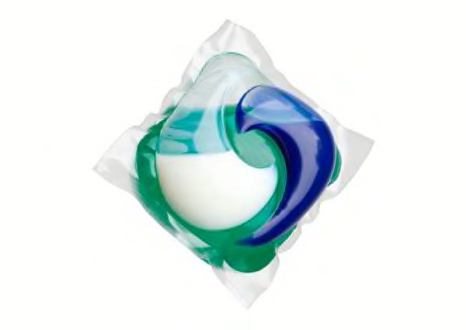
Single-Dose Pacs
Known as pacs, packets, pods, tabs, and tablets, these single-dose units deliver a premeasured amount of detergent. They’re convenient, and CR’s latest tests found that the best-performing single-dose detergents clean better than the best gels. That may be because pacs often contain one or more additives—including pretreat solution, degreaser, bleach, enzymes, and rinse aid—to boost cleaning. The price per load for pacs in our ratings ranges from 12 to 57 cents, meaning you pay more per load for convenience and performance than you would for gels or powder.
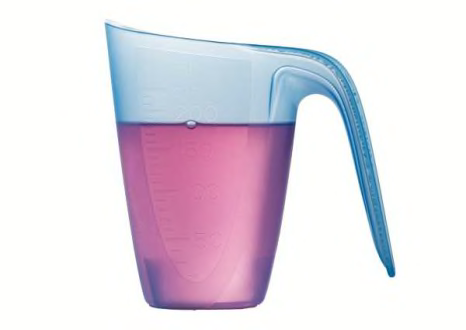
Gels
This is your least expensive option per fluid ounce—the gels we tested cost 7 to 44 cents per load (though smaller loads will require less detergent and cost you even less overall). Although gels generally don’t match the cleaning power of detergent pacs, some detergents, such as the Great Value (Walmart) Dishwasher Gel and Cascade Complete + Oxi Dawn, do an impressive job cleaning dishes.
Powders
As with gels, you have to measure out the proper amount for each load. Past tests in our labs found that powder dishwasher detergents can get the job done, although they all had a hard time getting pots clean. Because consumers now generally opt for pacs and gels, we did not include powder formulas in our latest tests.
How CR Tests Dishwasher Detergents
CR’s testers apply a baked-on food mixture to eight ceramic dinner plates and load them into a dishwasher, along with clean plates, bowls, and drinking glasses to fill the machine. After running a normal wash cycle, we use imaging analysis to determine precisely how clean each dish is and whether any water spots are present. Next, we run a set of glass dishware and aluminum tiles through a wash cycle with especially hard water to see how well the detergents can prevent residue. Then we use a spectrophotometer to assess whether any haze has formed on the glass and metal.
How to Boost Your Dishwasher's Performance
To help your dishwasher and detergent perform their best, here are a few things to keep in mind.
Skip prerinsing. Most dishwashers have a sensor that checks how dirty the water is. The sensor determines the amount of water and the time needed to clean the dishes. But if you prerinse your dishes and the sensor detects little food, the dishwasher gives the dishes a lighter wash, which can leave bits of food on dishes and glasses. The enzymes in your dishwasher detergent also work best when they have buildup on the dishes to cling to. What you should do, though, is scrape any large chunks of food off dishes and pots before loading them into the dishwasher because they may fall into the tub and reduce your machine’s water flow.
Load correctly. Your owner’s manual will recommend a loading method that works best for your dishwasher. In general, load large items along the sides and back, so they don’t block the water and detergent. Face the dirtier side of dishes toward the center of the machine, and don’t let dishes or utensils nest together. Place items with baked-on food in the bottom rack, face down toward the sprays. Rest glasses upside down on prongs so that they don’t fill with water. Use the top rack for plastic and delicate items that are dishwasher-safe.
Put the detergent in the right place. As a general rule, you should put your dishwasher detergent in the dispenser unless your dishwasher’s manual specifies otherwise. The dispenser ensures that your detergent is dispensed at the optimal time during the dishwasher’s cleaning cycle. Putting your detergent anywhere else—for instance, tossing it straight into the dishwasher base—can negatively affect your dishwasher’s performance.
Use a rinse aid. Rinse aids prevent spotting and improve drying by breaking the bond between the water molecules and dishes, causing water to form sheets and slide off. Many dishwashers have specific rinse-aid dispensers, but if yours doesn’t, you can buy a rinse-aid basket that hangs from the upper rack. While some detergents contain rinse aid as one of their additives, experts recommend using a separate rinse aid for maximum effect if you want your dishes to be drier and have fewer water spots.
Keep the filter clean. If your dishwasher has a manual-clean filter, it’s important to clean it regularly—that means every couple of months, depending on how often you use your dishwasher. It’s the filter’s job to prevent food debris from redepositing on clean dishes, and bits of food that get stuck there can interfere with that function. Self-cleaning filters don’t require the same maintenance, though if you’re finding food bits on your dishes after a cycle, your filter may have a problem that requires repair.
Common Dishwasher Detergent Questions
Do dishwasher detergents sanitize dishes? The answer is no. The primary function of dishwasher detergents is to remove food residue, grease, and stains, not sanitization, according to Aleksandra Kruszewska, senior manager of research and development for the dishwashing brand Finish.
The heat inside your dishwasher actually plays the most important role in sanitizing dishes. If you want your dishes sanitized, select the sanitization cycle on your dishwasher, which will raise the water temperature inside the dishwasher to at least 180° F, says Morgan Eberhand, principal scientist with Cascade.
What’s the difference between a detergent labeled as "3-in-1" and a "4-in-1"? These terms refer to the components within a detergent that offer different functions, such as removing stains or preventing discoloration and dullness on dishes, says Kruszewska.
However, there are no industry standards for the specific ingredients contained in a detergent when it’s labeled as "3-in-1" or "4-in-1," and the composition varies by brand. For clarity, it’s best to read the label of the detergent you’re considering buying to understand its components or the effects of the formula, says Tim Fowler, head of research and development at Seventh Generation.
How can I ensure that my dishwasher pods or tablets dissolve completely? If you find that your pod often ends up partially dissolved or not dissolved at all after a cycle, here’s what to do: First, make sure your hands and the detergent compartment inside the dishwasher are dry before you load the pod into the machine. Because the film on the dishwasher pod is designed to dissolve on contact with water, even exposure to a small amount of moisture can dissolve the film and cause the pod to stick to the compartment and not be dispensed properly, says Eberhand.
When loading the dishwasher, check that the detergent compartment isn’t blocked by any large dishes. If the detergent compartment door can’t open fully during the cycle or the detergent isn’t able to be released, the pod won’t dissolve.
If you’re using the short cycle on your dishwasher, be aware that different forms of single-dose units have different rates of dissolution. Hard-pressed powder tablets take longer and may not fully dissolve by the end of a shorter cycle, whereas dishwasher pods encased in highly soluble PVA film usually will dissolve completely, even in a short wash, Eberhand says.
Dishwasher Detergent Brands
A private brand owned by Amazon, Amazon Basics currently sells dishwasher detergents in pac form.
Cascade, manufactured by Procter & Gamble, is the leading brand of dishwasher detergent and is sold at many national retailers. Cascade makes a wide variety of detergents, including pacs, gels, and powder.
Introduced to the American market in 1953, Finish quickly became a leading brand of dishwasher detergent. The brand’s tablets, gels, and powder are now sold in more than 40 countries.
Great Value is Walmart’s private label for a variety of consumer products, including dishwasher detergents.
Kirkland Signature is Costco’s private label. Its dishwasher packs are sold only at Costco warehouses and costco.com.
Member’s Mark is the private label of Sam’s Club, a membership-only retail warehouse club owned and operated by Walmart. Member’s Mark makes dishwasher detergent in pac form only, and it’s sold exclusively at Sam’s Club.
Palmolive is an American multinational brand that began with a single bar of soap in 1898 and has since expanded to produce a range of cleaning products, including dish detergents and hand soaps. The company merged with Colgate in 1953 to become Colgate-Palmolive.
Presto is a private-label brand owned by Amazon that focuses on cleaning and household items.
Seventh Generation, a major brand in the green product category, offers products containing plant-derived cleaning agents and enzymes. Its lineup includes pacs, gels, and powders.
Up&Up is Target’s private label for a variety of consumer products, including dishwasher detergents.
